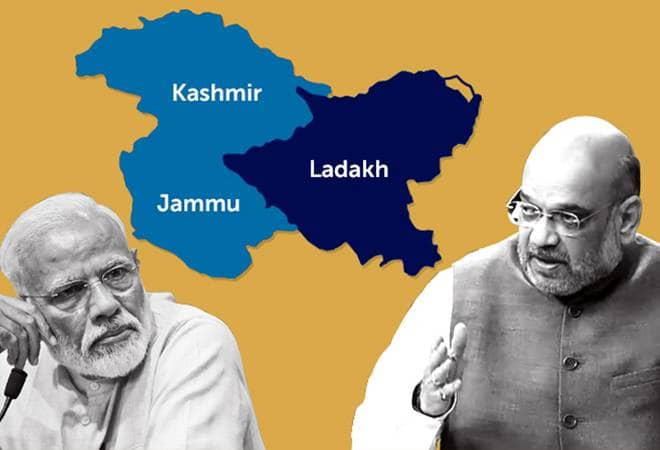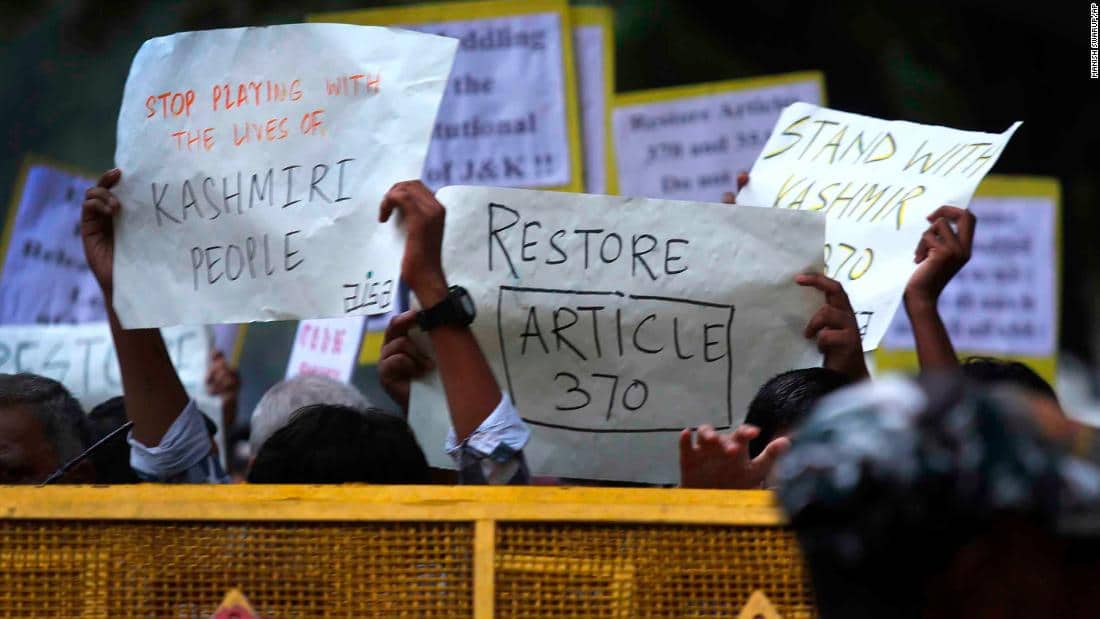
India has revoked the special status of Kashmir, the Himalayan region that has long been a flashpoint in ties with neighbouring Pakistan, moving to grasp its only Muslim-majority region more tightly.
In the most far-reaching political move in one of the world’s most militarised regions in nearly seven decades, India said it would scrap a constitutional provision that allows the state of Jammu and Kashmir to make its own laws.
“The entire constitution will be applicable to Jammu and Kashmir,” Interior Minister Amit Shah told parliament, as opposition lawmakers voiced loud protests against the repeal.
Foreign ministry officials later briefed envoys of several countries on the changes to the state’s administrative status, saying they were aimed at promoting good governance, social justice and economic development.
The government also lifted a ban on property purchases by non-residents, opening the way for Indians to invest and settle there, just as they can elsewhere in India.
The measure is likely to provoke a backlash in the region.
Special Joint Session scheduled Tuesday in Pakistan on Kashmir decision
Pakistan’s Parliament will hold a special joint session Tuesday to discuss India’s decision on Kashmir and “rising tensions along the line of control,” according to a presidential decree from Pakistani President Arif Alvi.
The session is scheduled to begin at 11am local time (2aET).
“Modi government has corrected a long overdue historic wrong,” says India’s home minister
India’s Home Minister Amit Shah has tweeted that the Indian government has “corrected a long overdue historic wrong.”
“I congratulate PM Narendra Modi for his unwavering commitment towards ensuring unity & integrity of our motherland,” Shah said.
Today, Modi govt has corrected a long overdue historic wrong.
I congratulate PM @narendramodi ji for his unwavering commitment towards ensuring unity & integrity of our motherland.
This historic decision will usher in a new dawn of peace & development in J&K and Ladakh region.
— Amit Shah (@AmitShah) 5 August 2019
Shah added in a separate tweet: “Kashmir has always been an integral part of India but this decision will ensure that there will no more be दो निशान-दो सविंधान [Two places, two constitutions] in J&K.”
Kashmir has always been an integral part of India but this decision will ensure that there will no more be दो निशान-दो सविंधान in J&K.
This decision is a tribute to all the patriots who made the supreme sacrifice for a united India.
Congratulations to the entire nation.
— Amit Shah (@AmitShah) 5 August 2019
Difference between State and Union Territory
For the novice who is unclear about how this change alters the power structure, here’s the difference between a state and Union Territory:
- A state has its own elected government but a Union Territory is an administrative unit controlled and regulated by the Union Government.
- The constitution head of the state is the governor but the President acts as the executive head for the UT. Chief Ministers administer the states but an Administrator, appointed by the President administers the Union Territory.
- A state also has its own Legislative Assembly and can form its own laws. However, there is a provision that allows the setting up of a Legislative Assemble in a Union Territory as is the case with Delhi and Puducherry. The rest of the Union Territories — Andaman and Nicobar Islands, Chandigarh, Dadra and Nagar Haveli, Daman and Diu and Lakshadweep – are without legislatures. Kashmir will be a UT with legislature like Delhi, while Ladakh will be a UT without legislature.
- States also have a federal mode of relationship with the Union Government, unlike the Union Territories. The powers in a state are distributed between the state and the union, while in a Union Territory, all powers are vested in the hands of the Union.
- States are also usually significantly larger than Union Territories when it comes to the area. But, this does not apply to Kashmir and Ladakh which are considerably bigger than some of the smaller states in India.
There are 29 states and seven Union Territories in India currently. However, after this bifurcation, there will be 28 states and nine Union Territories in the country.



